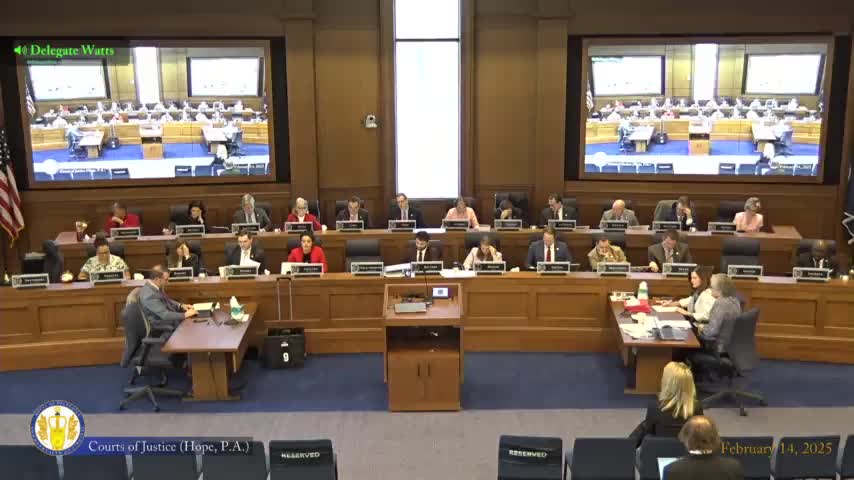Committee approves substitute for SB 10 13 adding notice requirement for certain affirmatives defenses
Get AI-powered insights, summaries, and transcripts
Subscribe
Summary
The committee reported a substitute for Senate Bill 10 13 that establishes a notice procedure when a defendant intends to use an affirmative defense based on a diagnosed mental illness, neurocognitive disorder, or developmental disability; the substitute passed 14–5.
Lede: The Courts of Justice criminal subcommittee approved a substitute for Senate Bill 10 13 that creates a procedure requiring advance notice when a defendant intends to assert an affirmative defense based on a diagnosed mental illness, neurocognitive disorder or developmental disability. The substitute was reported by the committee on a roll call of 14–5.
Nut graf: Sponsors and counsel said the substitute adopts an existing notice framework drawn from § 19.2‑271.6 and applies it to cases where a defendant intends to offer evidence that their behavior was the result of a qualifying disorder when charged with assault and battery on a law-enforcement officer. Counsel told the committee the substitute seeks to align timing and procedural safeguards while allowing courts discretion to grant continuances or exclude untimely evidence.
Body: Counsel Troy Patrasher told members the substitute adds language taken from the notice provision in § 19.2‑271.6. Under the substitute, a defendant who intends to assert the affirmative defense must give notice to the Commonwealth at least 60 days before trial in circuit court, or at least 14 days if trial is set within 21 days of the defendant's last court appearance. Patrasher said that if notice is not given and the defense is nonetheless proffered, the court may, in its discretion, allow the Commonwealth a continuance or, under appropriate circumstances, bar the defendant from presenting that evidence. Any continuance granted under this provision would not be counted for speedy-trial purposes.
Members asked whether the substitute changes the standard of proof or the class of admissible evidence. Delegate Obenshein asked counsel what evidence would be admissible under the change that was not already admissible under § 19.2‑271.6. Counsel and a committee member explained the difference in application stems from the target offense: § 19.2‑271.6 historically applies to specific-intent crimes and the substitute extends a notice procedure to an offense (assault and battery) that is generally treated as a general-intent crime, thereby making the affirmative-defense notice procedure available in these cases.
The motion to report the substitute was moved by Elliot Watson and seconded by Delegate Simon (as recorded in the transcript); the substitute was reported on a roll call of 14 yes, 5 no.
Ending: The substitute advances to the next stage in the General Assembly process; counsel indicated the provision was modeled on existing statutory language and emphasized the court’s discretion over admissibility and potential continuances.
